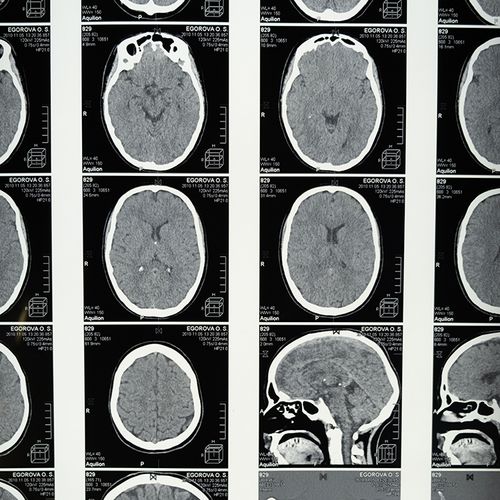Most people probably find drinking a milkshake a pleasurable experience, sometimes highly so. But apparently that's less apt to be the case among those who are overweight or obese.
Overeating, it seems, dims the neurological response to the consumption of yummy foods such as milkshakes, a recent study suggests. That response is generated in the caudate nucleus of the brain, a region involved with reward.
The Study
Researchers using functional magnetic resonance imaging (MRI) found that overweight and obese people showed less activity in the caudate nucleus of the brain when drinking a milkshake than did normal weight people.
The higher your BMI (body mass index), a measure of body fat based on your weight and height, the lower your caudate response when you drink a milkshake, said study lead author Dana Small, PhD, MSc, an associate professor of psychiatry at Yale University and an associate fellow at the university's John B. Pierce Laboratory.
The effect was especially strong in adults who had a particular variant of the taqIA A1 gene, which has been linked to a heightened risk of obesity. In them, Dr. Small said, the decreased brain response to the milkshake was very pronounced. About a third of Americans have the variant.
The findings were presented at an American College of Neuropsychopharmacology meeting in Miami.
Possible Explanations
Just what this says about why people overeat or why dieters say it's so hard to ignore highly rewarding foods is not entirely clear. But the researchers have some theories.
When asked how pleasurable they found the milkshake, overweight and obese participants in the study responded in ways that did not differ much from those of normal-weight participants, suggesting that the explanation is not that obese people don't enjoy milkshakes any more or less.
And when they did brain scans in children at risk for obesity because both parents were obese, the researchers found the opposite of what they found in overweight adults.
Children at risk of obesity actually had an increased caudate response to milkshake consumption, compared with kids not considered at risk for obesity because they had lean parents.
What that suggests, the researchers said, is that the caudate response decreases as a result of overeating through the lifespan.
"The decrease in caudate response doesn't precede weight gain, it follows it," Dr. Small said. "That suggests the decreased caudate response is a consequence, rather than a cause, of overeating."
Animal Studies With Similar Results
Studies in rats have had similar results, said Paul J. Kenny, PhD, an associate professor in the behavioral and molecular neuroscience lab at the Scripps Research Institute in Jupiter, Florida.
When rats were given access to highly palatable, highly rewarding food for extended periods, they became obese. The fatter they got, the more the response in their brain reward centers decreased.
"Over time, the reward systems began to slow down," Dr. Kenny said. "They were not functioning properly. We think something similar may be going on in humans."
"As you go through your life and continue to eat these highly palatable foods, you are overstimulating your brain reward center," he explained. "Over time, the system fights back, and it tones itself down-which is why the higher the BMI, the less activity you see in the reward area."
Does Weight-Loss Restore The Brain’s Response To Normal?
Among other things, the brain's caudate nucleus is involved with regulating impulsivity, which is related to self-control, and addictive behaviors, Dr. Small noted.
"The caudate is a region of the brain that receives dopamine," she said. "What this brain response could mean is that overeating causes adaptations in the dopamine system, which could confer further risk of overeating."
The question for dieters, then, is whether the caudate response can be restored to normal if they lose weight. The researchers said they didn't know but planned to test that.
Research in people with other addictions suggests that, over time, there may be some return to normalcy in the brain's reward processing but perhaps never a complete return to where you started, Dr. Kenny said.
Expert Reaction
About 30% of the US population is classified as obese, and the medical consequences of that cost more than $100 billion annually, said Nora D. Volkow, MD, director of the US National Institute on Drug Abuse and an expert on the neurobiology of obesity.
One of the primary culprits behind obesity, she said, is the constant availability of "excessively rewarding food" that, when eaten often, may alter the brain's reward system.
"It's increasingly being recognized that the brain itself plays a fundamental role in obesity and overeating," Dr. Volkow said.
